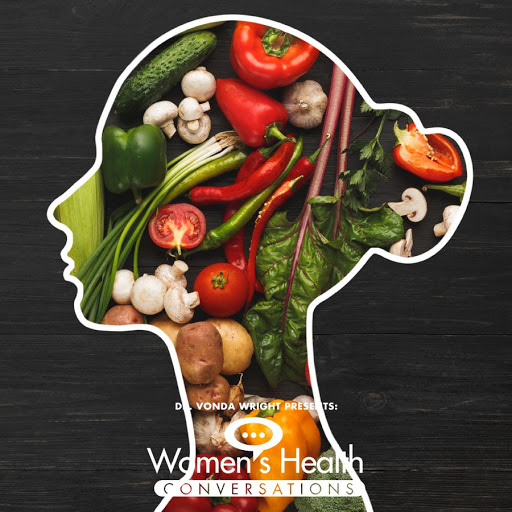Eat Yourself Smart: How Your Diet Can Raise Your IQ
Intelligence quotient, most frequently referred to simply as IQ, is a “type of standard score that indicates how far above, or how far below, his/her peer group an individual stands in mental ability.” We tend to think of IQ as being set in stone. Many of us feel that once we receive our IQ score in an official test, that is our IQ for life. This simply is not the case. While advanced IQ tests are designed to target areas of our cognitive abilities that hold true over time, modern science tells us that IQ is fluid.
This begs the question: if IQs can change, how can I boost my IQ? One great way to raise your IQ is to make healthy dietary choices. Today, we will review fluid and crystallized intelligence, and discuss how dietary habits may be able to boost your IQ.
Understanding Fluid Intelligence vs. Crystallized Intelligence
First, let’s state the obvious. Measuring intelligence in any manner is not a perfect science. Testing may be flawed, conditions may be flawed, and the overall concept of what makes one “intelligent” is difficult to define. Modern science tells us that there are two basic forms of human intelligence:
- Fluid intelligence: the ability to reason, transform, generate, and/or manipulate novel concepts on the fly.
- Crystallized intelligence: the ability to understand cultural and societal information and involve that information in your daily thinking.
IQ testing is meant to focus on fluid intelligence. In other words, IQ tests are meant to demonstrate your ability to make quick decisions about novel problems. Fluid intelligence generally develops through childhood into middle adulthood before it begins to decline. As we age, taking steps to maintain or increase our IQ is more important than ever.
How Diet Can Positively Impact IQ
So how exactly can we boost our fluid intelligence through our diet? There are a few ways in which your diet can actually boost your IQ in the short and long term.
Childhood diet
For us, it is too late to go back to early childhood and adjust our diets. For our children and grandchildren, diets high in processed foods, sugar, and fat have been linked to lower IQ scores. Children who more regularly ate fish, vegetables, and healthy carbohydrates had higher IQ scores.
Control your blood sugar
If you have ever felt out of sorts after eating too much sugar, that probably wasn’t your imagination. There is a strong link between abnormal blood sugar levels and decreased IQ. Choosing a low sugar diet with a balance of healthy fats, proteins, and complex carbs from sources like sweet potatoes, brown rice, and whole wheat products is a great way to keep blood sugar levels in check.
Eat a nutrient-dense diet
Our modern dietary mindset is sadly fixated on calories above all else. Instead, it might be helpful to consider a diet rich in nutrients. Choosing nutrient-dense foods like vegetables, fresh fruit, and lean meats over purely calorie-dense foods like donuts and pizza is a great way to stay full and keep your mind sharp. It should be noted that many healthy foods like nuts and oils are extremely calorie-dense and nutrient-dense. These types of foods should be enjoyed in moderation.
Try to avoid processed foods
Again moving beyond simple calorie counting, the added ingredients in processed foods can wreak havoc on your mental wellbeing. Excess amounts of salt, sugar, and preservatives can potentially lower IQ and can even lead to increased risk of degenerative diseases down the line. Fried foods and processed foods have been shown to lower our ability to learn new information and recall old information.
IQ Boosting Foods
With all of this in mind, what are some healthy foods we can incorporate into our diets to stay sharp as we age? Here are some great choices that should fit most diets:
Salmon (or other fatty fish): omega-3 fatty acids are one of the most important inclusions in any brain-healthy diet. Omega-3s are considered “essential” due to the fact that our bodies cannot produce them independently. Halibut, tuna, and anchovies are other options to get plenty of omega-3s.
Cruciferous greens (spinach, brussels sprouts, broccoli): going back to the idea of eating a nutrient-dense diet, leafy greens and other nutrient-rich vegetables are ideal for boosting brain function. These types of vegetables have been shown to provide ample amounts of iron, vitamins, minerals, and antioxidants.
Nuts (walnuts, almonds, cashews): nuts are the perfect midday snack to boost IQ. They are rich in omega-3s and vitamin E, a compound that has been shown to slow the brain aging process in many adults.
Others: there are far too many IQ boosting foods to cover in detail. Other options include avocado, blueberries, red wine, dark chocolate, and just about any other food choices that are naturally high in nutrients.
Women’s Health Conversations Educates Women on Healthy Lifestyle Choices
Women’s Health Conversations was founded by Dr. Vonda Wright with a simple yet powerful goal: transform the individual woman’s health and therefore the nation’s health. We understand the unique challenges facing women today, and we are here to help. Women’s Health Conversations proudly offers events, podcasts, educational resources, blogs, and much more. Women impact over 80% of our nation’s health care decisions. We believe that educating women to make the best possible decisions benefits our national health, culture, and economy.

